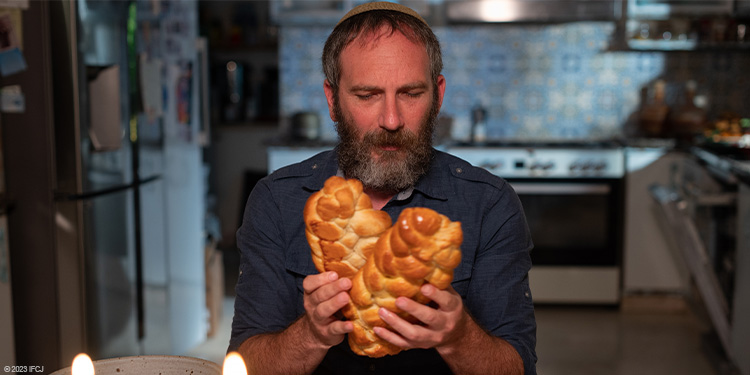Challah: The Blessing in the DoughSample


Bringing Our Blessings to God
“Speak to the Israelites and say to them: ‘When you enter the land to which I am taking you and you eat the food of the land, present a portion as an offering to the LORD.’”
— NUMBERS 15:18–19
The Jewish sages teach, “One who fulfills the commandment of separating challah, it is as if he has nullified the worship of idols; while one who does not fulfill the mitzvah [command] of separating challah, it is as if he sustains the worship of idols.”
How does the act of taking a piece of dough and giving it to God rid ourselves of idol worship?
Bread, or challah, is the ultimate hard-work food. In ancient times, the first step in producing bread was making flour, a tedious task that involved separating the wheat grains from their shaft and then grinding the grain into fine flour. However, even before this primary step, someone had to plant the wheat, tend to it, water it, and then harvest it.
Even after the flour had been produced, it still required additional ingredients and then the physical kneading of the dough, involving an enormous amount of time and effort. Finally after all these steps had been completed, and the dough was ready to be shaped and baked, it would be very easy for the bread-maker to take all the credit. By taking that small piece of challah, the bread-maker acknowledges that it is not “My power and the strength of my hands [that] have produced this wealth for me” (Deuteronomy 8:17), but rather God who gives us the ability to do all things.
In a broader sense, bread is a symbol of all material items and physical accomplishments. Money is often referred to as “dough,” and someone who earns money is commonly called a “breadwinner.” The ritual of taking challah reminds us that all our wealth and achievements are not of our own doing, but gifts from God.
Idol worship can take many forms. It doesn’t necessarily entail bowing down to an image of wood or stone. Today, idol worship can take the form of relying upon and revering wealth and talents – both of other people and our own. Taking challah sends the message that we recognize that we rely upon God alone and attribute our success only to Him.
We are confident that as we give away our “dough,” He will provide more. In this way, we turn away from idol worship and affirm our obedience and faith in the Lord. In addition, we express our gratitude for God’s gifts, which include the abilities that He has placed within us to create wondrous things – from bread and beyond.
Scripture
About this Plan

Making challah, the braided Jewish bread associated with the Sabbath, is a wholly spiritual experience, and a labor of love, faith, and devotion. In this study, we'll learn about challah's biblical origins, find inspiration for today, and even share a recipe you can make at home!
More
We would like to thank International Fellowship of Christians and Jews for providing this plan. For more information, please visit: https://www.ifcj.org
Related Plans

Adversity

The Mandate to Multiply.

Your Prayer Has Been Heard: How God Meets Us in Seasons of Weariness and Waiting

Coffee Talks With Worship Leaders

Hope in Creator’s Promises

Scriptures and Hymns to Grow Your Joy This Christmas

What the Bible Says About Advent - 29 Days of Advent Meditations

Worth the Wait: Living Pure in a Culture of Pressure

The Promise of Revival
